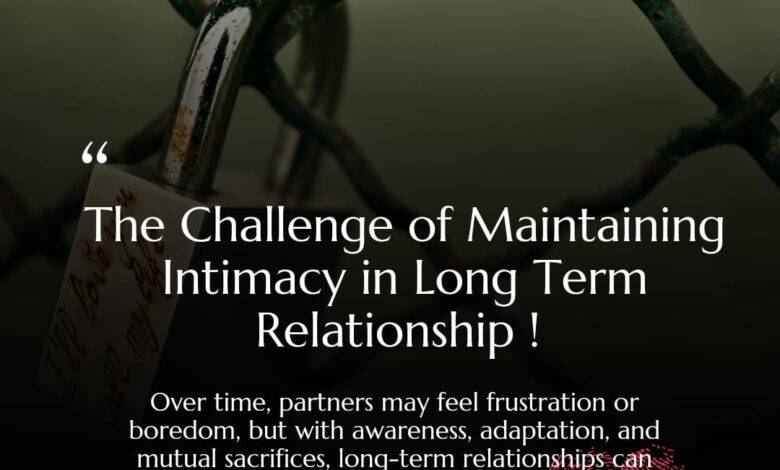10 Key Signs of True Intimacy in a Relationship – Mindsterk

Signs of intimacy in a relationship go beyond physical closeness and manifest in various emotional, psychological, and social ways. These signs of intimacy can be observed in multiple forms, including emotional, physical, and psychological closeness. These indicators of intimacy demonstrate a profound emotional and physical bond in a relationship founded on trust, respect, and common experiences. These signs reflect a deep, meaningful connection beyond the surface, contributing to a strong and lasting relationship.
Signs of intimacy in a relationship include:
- Emotional Openness
- Physical Affection
- Trust and Security
- Effective Communication
- Mutual Support
- Respect for Boundaries
- Shared Experiences
- Comfort in Silence
- Nonverbal Understanding
- Shared Laughter and Playfulness
These signs reflect emotional, physical, and psychological closeness in a relationship.
Signs of intimacy issues:
Signs of intimacy issues in a relationship can be subtle or obvious and often affect both the emotional and physical aspects of the partnership. One or both partners avoid discussing feelings or struggles, lacking emotional depth and connection. There is a noticeable decline in physical touch, such as hugging, kissing, or even holding hands. Physical intimacy may feel awkward, forced, or absent. There is a reluctance to share personal thoughts, insecurities, or fears. Partners may fear judgment, rejection, or emotional hurt. A decline in sexual desire or sexual intimacy, or difficulty initiating or enjoying physical closeness, often signals deeper intimacy problems. One partner might become detached, preferring solitude or avoiding deep conversations, which creates a gap in emotional closeness. One partner might become detached, preferring solitude or avoiding deep conversations, which creates a gap in emotional closeness.
Fear of intimacy signs:
Fear of intimacy refers to the anxiety or discomfort some individuals feel when developing close emotional, physical, or relational bonds with others. This fear can manifest in various ways.
Common signs of a fear of intimacy include:
- Struggles with sharing personal feelings or being vulnerable.
- The constant worry that getting close will result in rejection.
- Avoids deep emotional connections, preferring surface-level interactions.
- Shies away from meaningful or emotionally revealing discussions.
- Fear of committing to long-term relationships.
- Hesitation or discomfort with physical affection, such as hugging or kissing.
- A pattern of being drawn to people who are emotionally or physically unavailable.
- Rejecting or distancing oneself when things get emotionally intense.
- An emphasis on maintaining independence, often avoiding relying on others.
These signs often stem from past trauma, abandonment, or negative experiences in early relationships, and can improve through self-awareness, therapy, and positive relationship experiences.
7 signs you have a fear of intimacy:
Recognizing these signs can help you understand your relationship patterns and work towards developing healthier connections. Here are seven signs that you may have a fear of intimacy:
- Difficulty Sharing Personal Feelings
- Avoidance of Commitment
- Emotional Detachment
- Pushing Partners Away
- Fear of Rejection or Abandonment
- Attraction to Unavailable Individuals
- Self-Sabotaging Behaviors
These signs are an important step in understanding and addressing your fears. If you relate to these signs, consider seeking support to work through these feelings.
Long term relationship quotes:
These quotes reflect the dedication, growth, and connection that characterize enduring partnerships. A long-lasting relationship requires falling in love many times, always with the same person. A long-lasting relationship is about compromise, patience, and understanding. In a long-term relationship, it’s not just about the big moments, but the little ones that count. The greatest happiness of life is the conviction that we are loved; loved for ourselves, or rather, loved despite ourselves.
Long term relationship vs life partner:
The terms “long-term relationship” and “life partner” are often used interchangeably, but they can imply different meanings depending on context.
Long Term Relationship:
Refers to a romantic relationship that lasts for an extended period, typically several years. The level of commitment can vary. Partners may be exclusive and serious but might not have formalized their relationship through marriage or a lifelong commitment. While long-term relationships can lead to marriage or life partnerships, they may also exist without those intentions.
Life Partner
A life partner is typically someone with whom one intends to spend their life. This term often implies a deeper commitment than just a long-term relationship. Life partners often work towards common goals, such as raising a family, building a future, and supporting each other through life’s challenges.
Short term dating:
Short-term dating is characterized by relationships that are typically casual and not intended for long-term commitment. Short-term dating can be a rewarding experience for those looking to enjoy romantic connections without the weight of long-term commitment. It emphasizes fun, exploration, and self-discovery while allowing individuals to navigate their dating lives on their terms. Partners may enjoy each other’s company without the pressure of serious commitments. Focus on enjoying the present moment and building a rapport.
Dating after a long term relationship:
Dating after a long-term relationship can be an exciting yet challenging experience. By taking the time to understand your feelings, being open to new experiences, and prioritizing self-discovery, you can navigate this transition successfully. Each new connection can provide opportunities for growth and fulfilment, helping you move forward positively in your dating journey. Dating after a long-term relationship can be a significant transition, often filled with a mix of emotions and challenges.
Long term relationship break up:
Breaking up after a long-term relationship is never easy, but it can also be an opportunity for personal growth and self-discovery. By approaching the breakup with honesty and compassion, allowing yourself to grieve, and focusing on self-care, you can navigate this challenging time and emerge stronger on the other side. Breaking up after a long-term relationship can be a deeply emotional and complex process. A long-term relationship often involves a significant emotional investment, making the breakup particularly painful. Avoid blaming or pointing fingers; instead, focus on expressing your feelings and reasons for the breakup.
Conclusion:
Every relationship has a beginning as well as an end. Especially when unnecessary relationships end very quickly. After starting a relationship, slowly the two become emotionally and physically close. However, some fear remains as a result of too much intimacy. However, too much intimacy can lead to the breakdown of some long-term relationships. After living together for a long time, life partners sometimes get frustrated and bored due to some reasons. And some reason long-term relationships break up. But with some sacrifices, both awareness and adaptation can sustain long-term relationships.






